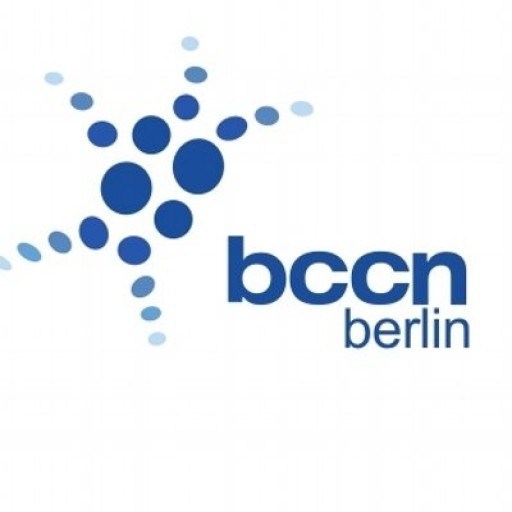The dynamic changes and developments in business and society at large are forcing companies and other organisations to keep transforming and adjusting in what has become a permanent process of change. Managers need to recognise these needs for change and respond effectively to them with their teams by their side. In order to accomplish these essential changes, executives need meaningful competences in five distinct areas:
- Recognising developments in the market
- Developing organisations
- Developing teams
- Developing individuals
- Shaping leadership mindsets and practices
The Master in Leadership and Change has been developed to empower executives and specialists with the knowledge and applied skills to master these challenges effectively. Students will acquire this essential ability by exploring the most important conceptual aspects in a scientifically grounded and practically-oriented course. The Master in Leadership and Change provides a practice-oriented course design to match these challenges. It is intended for two groups of students:
- Executives on all levels who are confronted with managing transformation and change processes in their organisations
- Internal and external experts who are asked to contribute to developing transformation and change processes in organisations
The students will develop their knowledge and abilities with a combination of scientific rigour and systematic commitment to practical relevance. The practical impact of the programme primarily relies on two aspects:
- our understanding of how executives can be developed further, and
- our access to methods that match this concept of executive development.
The programme covers nine modules for a total of 90 ECTS points. Successful graduates are awarded the internationally recognised degree of Master of Arts.
The modules in brief:
1. Introduction & Methods
- Leadership / transformational leadership
- Transformations in economics, society, and organisation
- Sustainability
- Methods of scientific research
2. Leading Yourself and Others
- Efficiency, efficacy, and fundamental change
- Values and integrity
- Priorities
- Performance
- Personnel decisions
- Strength-oriented approach
- Leading industry, service, and knowledge workers
- Personnel and organisational development
3. Leading an Organisation
- Essential control mechanisms for leading an organisation
- Impacts on organisational environment
- Development of alterable organisations
4. Analytical Mindset and Practices
- Information management
- Market and resource based approach
- Lifecycle management
- Organisational impact factors
5. Objective-oriented Mindset and Practices
- Systemic and goal-oriented leadership approach
- Psychology of goal orientation, self control, and motivation
- Goals and individual leadership
6. Innovation-oriented mindset and practices
- Innovation and leadership
- Creativity
- Innovation, learning, and change
7. Network-oriented mindset and practices
- Network analysis and leadership of networks
- Virtual technologies and leadership
8. Worldly mindset and practices
- Internationalisation and leadership
- Leadership in centralised and decentralised organisations
- Diversity management
9. Action-oriented mindset and practices
- Decision making
- Implementation
Educational organisation
The Master's programme includes nine modules for a total of 90 ECTS, plus a fully supervised and documented study project and Master's thesis.The Steinbeis University offers you coaching and tutoring during your studies. You will have the opportunity to discuss and get advice on current questions from practice and science relating to your studies. The personalised tutoring concept and the study concept represent effective support for your progress on the course. You can leave all administrative concerns to us and completely concentrate on your studies.
Our concept of project competence studies is meant to develop the competences and skills that are relevant in modern organisations by means of a unique study concept (e.g. support for self-management and team working skills) and by combining scientific research and practice. The practical relevance of the studies is guaranteed by the study project that forms part of the degree course. Ideally, you should have an opportunity to complete this project at your place of work. In individual cases, when the study project cannot be done at your place of work, the Institute of Executive Capabilities (IEC) can help you find a suitable project and project host.
Teaching methods include lectures, practice elements such as case studies, student presentations and group discussions. The course also encourages the students to share their insights in class and via the powerful learning platform. The platform hosts shared work assignments as well as multimedia study materials, access to academic libraries, and abstracts for publications on the leadership and management topics covered in the course.
The flexible design of the course makes the degree a particularly suitable choice for students who are employed. You can study alongside your normal job in a combination of self-guided studies and classroom sessions.
Each semester, students will attend one session on campus (two modules; four days) - April and October each year. During the rest of the semester, students will pursue their studies while making use of the institute's elaborate e-learning platform.
Internships
No additional internship is necessary, since the programme is extra-occupational.Forms of assessment
The modular structure of the course includes exams for each module. Students complete every module by passing the relevant exam. A variety of exam types and formats are used, among them exam papers and homework assignments for each module. Any written exams are held as part of the on-campus sessions.The programme is divided into nine modules for a total of 55 ECTS credit points. In addition, the supervised transfer project is rated at 15 ECTS points. The course concludes with a Master's thesis (20 ECTS points), for a complete course credit of 90 ECTS points. Certified optional modules and certification programmes can be completed for up to 30 additional ECTS points.
Course objectives
Commercial enterprises and other organisations will be facing more and more extensive transformations in the near future. The Master in Leadership and Change has been developed to empower executives and specialists with the knowledge and applied skills to master these challenges effectively.Language requirements
English skills will be checked during the admission process (interviews). For the international Master's programme, German skills are not necessarily required.Academic requirements
Bachelor's degree (or equivalent)Aptitude test/interview
Enrolment fees
250 EURCosts of living
Approx. 600 EUR per month / 20 EUR per day plus accommodationJob opportunities
The flexible design of the course makes the degree a particularly suitable choice for students who are employed.If students wish to stay in Germany during the entire duration of the programme, the study management can provide assistance with the search for an internship or a position as a working student.
Arrival support
The Institute of Executive Capabilities provides all information needed for obtaining a visa and checks the compliance of the students' documents with the formalities of the German authorities.Assistance with public transportation, such as a pick-up service from/to the airport may also be provided.
Services and support for international students
The multilingual study management assists students with all subject-specific and other concerns, including enrolment formalities, the organisation of their studies, visa and travel formalities, the organisation of accommodation in Berlin and more. Where required, assistance in finding an employment or internship may also be provided.Accompanying the academic training, professional coaching is provided for each student by a qualified member of the faculty.









